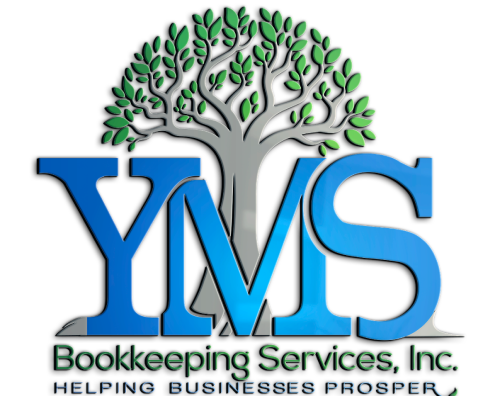Construction bookkeeping is a critical aspect of managing a construction business. It involves tracking and recording financial transactions, managing cash flow, and ensuring accurate financial reporting. However, many construction companies often fall into common pitfalls that can have costly consequences. In this article, we will explore the common mistakes in construction bookkeeping, the importance of accurate construction bookkeeping, red flags to watch out for, and best practices for effective construction bookkeeping.
Common Mistakes in Construction Bookkeeping: Avoiding Costly Pitfalls
One of the most common mistakes in construction bookkeeping is failing to separate personal and business finances. Mixing personal and business expenses can lead to inaccurate financial records and make it difficult to track project costs and profitability. It is crucial to establish separate bank accounts and credit cards for your construction business to maintain clear financial records.
Another common mistake is not keeping track of all expenses and receipts. Construction projects involve numerous expenses, including materials, labor, subcontractors, permits, and equipment rentals. Failing to record and track these expenses can result in inaccurate financial statements and missed opportunities for tax deductions. Implementing a robust expense tracking system and diligently recording all expenses can help avoid these pitfalls.
Inaccurate job costing is another significant mistake in construction bookkeeping. Job costing involves allocating costs to specific projects to determine their profitability. Without accurate job costing, construction companies may underestimate or overestimate project costs, leading to financial losses or missed opportunities for profit. Implementing a reliable job costing system and regularly reviewing and adjusting cost estimates can help avoid this pitfall.
The Importance of Accurate Construction Bookkeeping: Key Areas to Focus On
Accurate construction bookkeeping is crucial for several reasons. Firstly, it provides a clear picture of the financial health of the business. Accurate financial records enable construction companies to track revenue, expenses, and profitability, allowing them to make informed decisions and plan for the future.
Secondly, accurate bookkeeping ensures compliance with tax regulations. Construction businesses are subject to various tax obligations, including sales tax, payroll tax, and income tax. Failing to accurately report and pay these taxes can result in penalties and legal issues. Accurate bookkeeping ensures that all financial transactions are properly recorded and reported, minimizing the risk of non-compliance.
Furthermore, accurate construction bookkeeping is essential for securing financing and attracting investors. Lenders and investors rely on accurate financial statements to assess the financial stability and profitability of a construction business. Inaccurate or incomplete financial records can raise red flags and hinder the ability to secure funding or attract potential investors.
Red Flags in Construction Bookkeeping: Warning Signs to Watch Out For
There are several red flags that construction companies should watch out for in their bookkeeping processes. One common red flag is inconsistent or incomplete records. If financial records are disorganized, missing transactions, or contain errors, it can indicate poor bookkeeping practices and raise concerns about the accuracy of the company’s financial statements.
Another red flag is a high number of unexplained or undocumented expenses. Unexplained expenses can indicate potential fraud or misappropriation of funds. It is crucial to regularly review expense reports and investigate any discrepancies or unexplained expenses to ensure the integrity of the bookkeeping process.
Additionally, excessive accounts receivable or accounts payable can be red flags. A high number of outstanding invoices or unpaid bills can indicate cash flow issues or problems with client payments. Regularly monitoring accounts receivable and accounts payable can help identify potential issues and take appropriate actions to address them.
Best Practices for Effective Construction Bookkeeping: Tips to Stay on Top of Your Finances
To ensure effective construction bookkeeping, construction companies should implement best practices that promote accuracy and efficiency. Firstly, it is essential to establish a standardized chart of accounts. A chart of accounts is a list of all the accounts used to record financial transactions. Standardizing the chart of accounts ensures consistency and makes it easier to track and analyze financial data.
Regularly reconciling bank and credit card statements is another best practice. Reconciliation involves comparing financial records with bank and credit card statements to identify any discrepancies or errors. Regular reconciliation helps identify and correct errors promptly, ensuring the accuracy of financial records.
Implementing a cloud-based accounting software specifically designed for construction businesses can also streamline bookkeeping processes. These software solutions often include features such as job costing, expense tracking, and financial reporting, making it easier to manage construction finances.
Lastly, seeking professional help from a construction accountant or bookkeeper can provide valuable expertise and ensure compliance with industry-specific regulations. Construction accountants are familiar with the unique financial challenges and requirements of the construction industry and can provide guidance on best practices and help avoid costly mistakes.
In conclusion, construction bookkeeping plays a crucial role in managing the financial aspects of a construction business. By avoiding common mistakes such as mixing personal and business finances, accurately tracking expenses, and implementing reliable job costing, construction companies can maintain accurate financial records and make informed decisions. Accurate bookkeeping is essential for assessing the financial health of the business, ensuring compliance with tax regulations, and attracting financing and investors. By watching out for red flags such as inconsistent records, unexplained expenses, and excessive accounts receivable or payable, construction companies can identify potential issues and take appropriate actions. Implementing best practices such as standardized chart of accounts, regular reconciliation, and utilizing construction-specific accounting software can help streamline bookkeeping processes. Seeking professional help from a construction accountant can provide valuable expertise and ensure compliance with industry-specific regulations. By following these guidelines, construction companies can stay on top of their finances and pave the way for success.
Explore Our Services:
Ready to offload your bookkeeping tasks? Discover our tailored bookkeeping services and let us handle the numbers while you focus on growing your business. Call us now (925) 858-7560.
